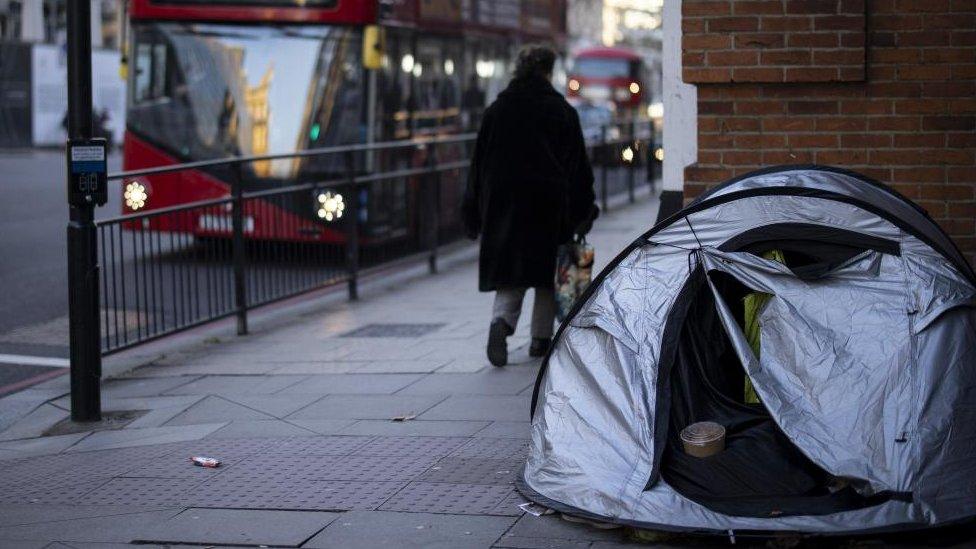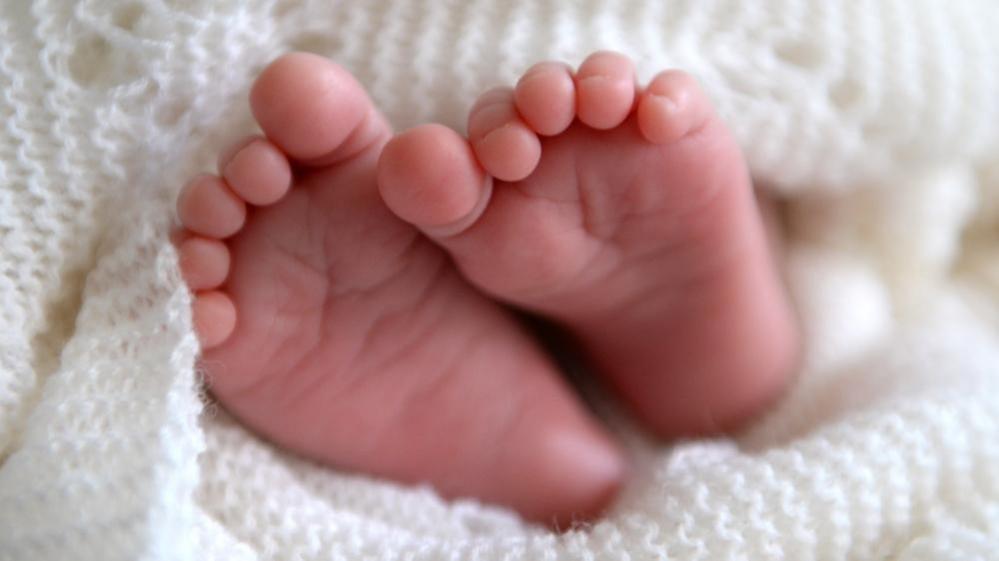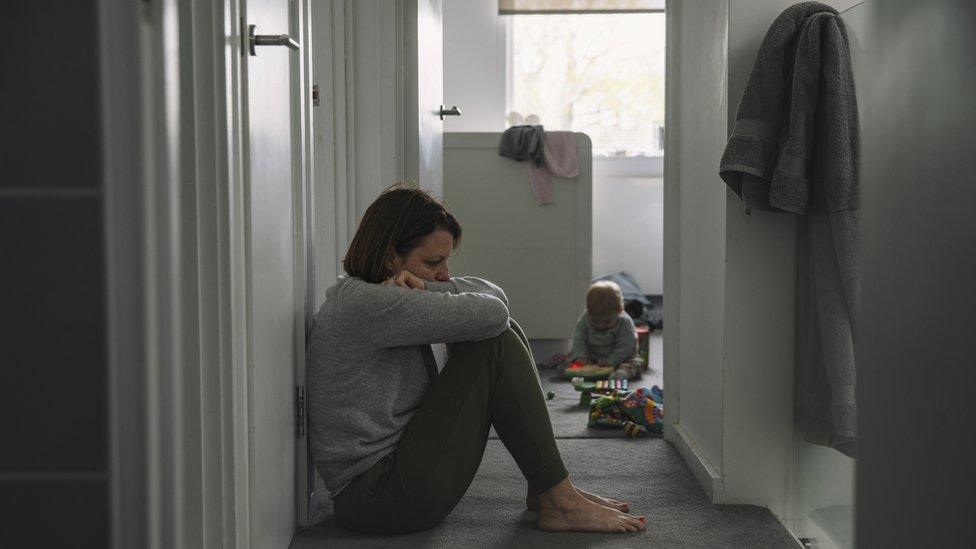Hospitals discharging people on to streets, MPs warn
- Published

Some people leaving hospitals and prisons are being trapped in a "cycle of homelessness" due to a lack of affordable housing and fragmented services, MPs have warned.
Government attempts to cut the asylum backlog have also left refugees relying on charities for housing, a cross-party group of MPs found.
They warn these problems are helping to fuel record levels of homelessness.
The government said it was spending £2bn to tackle homelessness.
The all-party parliamentary group (APPG) for ending homelessness has written to ministers warning many public services are unaware of their "duty to refer" people at risk of homelessness to local councils.
Conservative MP Bob Blackman, who co-chairs the group said: "More than a third of mainstream healthcare professionals didn't know about the duty to refer."
The duty to refer, which was introduced in 2017's Homelessness Reduction Act, places a legal duty on some public organisations to refer people who are homeless or at risk of homelessness to the relevant local authority.
In their letter, the APPG cited research from the charity Homeless Link, which found 24% of homeless people going to hospital were discharged directly to the streets.
Ministry of Justice (MoJ) statistics show one-in-three prisoners "are released into homelessness", the APPG said.
The APPG is calling for a commitment that no one be discharged from a hospital on to the streets.
It also said the MoJ should adopt a new "resettlement framework" to ensure local authorities, probation services and charities commit to ensuring no prisoner "is released from prison without safe and settled accommodation to go to".
The government's rough sleeping strategy, which was published shortly before Mr Sunak became prime minister, recognised the need to "ensure that those leaving a public institution - whether it's prison, hospital or care - don't find themselves out on the streets with no place to go".
Meanwhile, refugees who cannot find housing are "literally being left to chance in the hope that charities will help them" by the government's attempts to abolish the asylum backlog, the group said.
Prime Minister Rishi Sunak pledged to "abolish" that asylum backlog by the end of 2023.
Since then, the government has cut in the total number of asylum claims from 136,000 this time last year to 99,000 through a "tenfold increase in the pace at which we complete the processing", according to Home Secretary James Cleverly.
The APPG proposes extending the time for people granted asylum to exit Home Office accommodation from 28 to 56 days.
'Postcode lottery'
The APPG letter, seen by the BBC, said "this is all happening within the context of record levels of homelessness".
"Severe financial constraints" faced by public services to house people has led to a "postcode lottery" when it comes to homelessness support, the APPG said.
A spokesperson for the Department for Levelling Up, Housing and Communities said: "We are working to ensure no one is released from a public institution to the streets, as we set out in our cross-government strategy 'Ending Rough Sleeping for Good'.
"We are investing £2bn over the next three years to tackle homelessness and rough sleeping, and we have made the unprecedented commitment to end rough sleeping within this Parliament."
- Published15 December 2023

- Published15 December 2023
